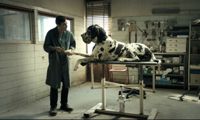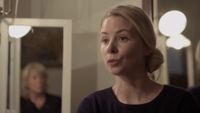Toronto International Film Festival 2018 Capsule Reviews of French Films
- Details
- Category: Cinéma - Movies
- Published: Tuesday, 04 September 2018 20:43
- Written by Gilbert Seah
Toronto International Film Festival (TIFF) 2018 Capsule Reviews of French Films

The Toronto International Film Festival 2018 version runs from Thursday6th September for 11 days till the 16th with the whole list of Gala Presentations and smaller films to whet very moviegoer’s appetite. Stars will line the red carpet following their films. So expect Bradley Cooper and Lady gaga to be seen with their film A STAR IS BORN as other stars and directs who are only too pleased to do a Q & A with the audience.
Ticket pricing is getting more complicated with a different tier in prices depending on whether a screening is evening or day or rush or for a regular or e capsule reviewed.premium feature. Best to check the website at:
Below are capsule reviews of selected Frenchfilms that are screened at this year’s TIFF. This article will be updated daily as new films are capsule reviewed.
French films are those shot wholly or paryially in French or films with France listed with a co-production credit. For a more complete set of capsule reviews inclduing non-Frecnh films, please chck our sister website at:
https://afrotoronto.com/index.php?option=com_content&view=article&id=1793&catid=67
CAPSULE REVIEWS:
CLIMAX (France 2018) ****
Directed by Gaspar Noe

Gaspar Noe (CARNE, SEUL CONTRE TOUS, ENTER THE VOID) shows what genius can be done with a troupe of dancers obsessed with their art. The film begins with interviews of individual members followed by an incredibly executed dance in synch to the amazement of the audience. Third segment has the camera following the dancers as they interact with each other, speaking about their aims, fears or just plain flirtation. This is followed once again by dance, this time with the camera placed permanent,y overhead of the dancers as they now individually dance into the frame, showing their prowess. The dancers now drink the sangria which is spiked with LSD. They never find out the culprit though the suspected get violently attacked. They last segment leading to the film’s CLIMAX has them indulging in sex and violent acts. The film’s dance sequences alone are more than worth the price of admission but the film delves more deeply into man’s tortured soul including the concept of death. CLIMAX is not a film for everyone but is nothing one has seen before for those who can take it.
Trailer: https://www.youtube.com/watch?v=Hi69nL_VrTE
DOGMAN (France/Italy 2018) ***1/2
Directed by Matteo Garrone

Director Matteo Garrone’s (GOMORRA) latest film DOGMAN begins with an angry dog growling his teeth in closeup, a very appropriate beginning of a very angry film that tells a tale of vengeance by a mild-mannered DOGMAN pushed to the limit. The dogman is Marcello who owns a dog care shop. He knows and loves his dogs, just as he loves his daughter who he occasionally sees. The film does not delve into his family affairs and the audience assumes Marcello is separated from his wife. He snorts coke and hangs around a big hulk and uncontrollable bully, Simone. The neighbourhood wants to bring Simone down as he is nothing but trouble but ends up leaving him alone When Simone fucks Marcello up in a series of events, Marcello eventually gives the bully in comeuppance, Garrone’s film is attain a difficult watch. He is a good storyteller that connects the audience to his characters. He even makes the bully sympathetic, loving his helpless mother and not being too bright.
Trailer: https://www.youtube.com/watch?v=eum93mpzpE0
GIRL (Belgium 2018) ***
Directed by Lukas Dhont

(in French and German)
GIRL tells the story of a boy/girl (Victor Polster) born a girl in a boys’s body undergoing a sex change to become girl. As if the body is not under sufficient strain, GIRL is pushing her body to the limit as she suffers in her daily training to become a ballerina. She has a supportive father and loving younger brother. GIRL is Dhont’s first film as he goes for realism at the expense of narrative. His camerawork is nothing short of suburb as one can see the camera focus changing as he tracks his camera. Often, the audience can tell what is happening by the camerawork from a closeup or camera shift, before being told verbally by the dialogue as to what has transpired. Dhont also effectively captures the emotions of her characters. GIRL is arguable the most emotional film screened at the festival.
Trailer: https://www.youtube.com/watch?v=Kdzu26tnUTc
HER JOB (Greece/France/Serbia2018) ***1/2
Directed by Nikos Labot

Direct from current times as heard on the Greek radio about the country’s dire unemployment woes, a husband has been put out of work for far too long. The wife, as a result takes employment as a cleaner at the newly opened shopping mall. They have two children, the elder daughter being spoilt and uncontrollable. Panayiota (Marisha Triantafyllidou) works hard but has a hard time at work, especially driving the new vacuum cleaner as well as a hard time at home, having to cook and have the family complain when she is not around to do chores for them. Things look as if it is reaching boiling point but director Labot takes his film to a higher level. Things improve. After taking driving lessons, Panayiota masters the vacuum. Her supervisor and colleagues appreciate her hard work and dedication. Her daughter starts cooking for her and husband cleaning for her. Director takes his film even one step further. To reveal more would spoil the film’s twist and enjoyment. The film works wonders, thanks to actress Triantafyllidou’s performance and the director’s frequent use of closeups that show every expression of joy and regret of her face. Marvellous too, is the way Labot connects the audiences to the protagonist, family and story.
Trailer: https://www.hollywoodreporter.com/video/her-job-trailer-1137998
L’HOMME FIDELE (A FAITHFUL MAN) (France 2018) ****
Directed by Louis Garrel

Louis Garrel is the son of Philip Garrel who broke into fame as an actor in Bertolucci’s THE DREAMERS and the recent GODARD MON A’MOUR. Louis proves his directing chops in this light hearted romantic comedy in the adventures of as the title implies, of one faithful man played by Garrel himself.. He loves Marianne who leaves him for his best friend who after passing away moves in with her. But her son with Tom breaks up the romance and has him now live with Eve who has always longed for him. The voiceovers change between him, Eve and Marianne. The film reminds one immediately of Truffaut’s heavier LES DEUX ANGLAISES ET LE CONTINENT where voiceover rules the layered menage-a-trios love story. Thought not as elegant, Garrel’s film is still smart, insightful while still maintaining its playfulness. The film bursts in youth and romance. Thoroughly enjoyable and entertaining and yes, funny!
Trailer: (unavailable)
MARIA BY CALLAS (France 2018) ***
Directed by Tom Volf

Tom Volf ’s MARIA BY CALLAS offers fresh insights into one of the great talents of the 20th century via recently rediscovered writings and interviews with the Greek-American soprano. Maria Callas has been praised by many as the greatest singer of the century. Callas was born and bred in New York City though many think she is of Italian or European origin. The film is comprised of beautifully restored archival footage with her own words from her letters and writings as narrated by American opera singer Joyce DiDonato. The Greek-American soprano rose to fame after World War II and became a star attraction in all the major opera houses. This film offers fresh insights into her public and private lives, especially her long-time romance with Aristotle Onassis, the affair that made headlines as both were still married at the time. Callas's music is obviously paramount in the film. The film’s real treat is Callas’ complete performances of the arias from the operas Norma, La Traviata, Carmen, and Tosca. Also insightful and funny is the footage of the David Frost interview with Callas telling Frost, "If someone really tries to listen to me, he will find all myself there.” The doc feels longer than its running time and could have been edited to a tighter 90 minutes.
Trailer: https://www.youtube.com/watch?v=tdxBhU46TGM
MAYA (France 2018) ***
Directed by Mia Hansen-Love

It’s been frequently on the news about war journalists in Syria being kidnapped with the threat of being decapitated on live televsion. MAYA, Mia Hansen-Love’s (LE PERE DE MES ENFANTS, EDEN) latest film has one such French journalist recently freed who travels to India on vacation to recuperate. He meets MAYA, an Indian girl who opens his eyes back to life, though she is too young for him to start a love affair. The best segment of the film is his re-meeting of his mother who is working with foreign children, though detached from her own son. This the only serious musings on life by the director. Lighter fare. otherwise from Hansen-Love with lots of beautiful scenery of poverty stricken India. The film does not really go anywhere as deep as her previous films but MAYA is still worth a look.
Trailer: (unavailable)
THE MERCY OF THE JUNGLE (Belgium/France 2018) ***
Directed by Joël Karekezi

The jungle is tough to survive in but the land with the political unrest is almost impossible to live in. As the Rwanda prisoners proclaim: “The soldiers have raped the wives and stolen the land.” Set in 1998 at the outset of the Second Congo War, Rwandan director Joël Karekezi’s second feature is a propulsive odyssey about a pair of Rwandan soldiers navigating both wilderness and personal existential crises while lost behind enemy lines. The two soldiers navigate Kivu, the borderland with its dense forests and hills where the Democratic Republic of Congo and Rwanda meet. The film is shot mainly with little light during the night, with just enough (light) to see the faces of the protagonists. Director Karekezi shows that war is hell, made even worse for the sergeant when he falls ill with malaria. The only saving grace is a group of sympathetic villagers who help him.
Trailer: https://vimeo.com/286503684
NON-FICTION (DOUBLES VIES) (France 2018) ***
Directed by Olivier Assayas

Assayas proves once agin his ‘auteur’ status with this playful yet literary and contemporary take on art imitating life. Two couples are under examination as each member having an affair with the opposite sex of the other couple, all still remaining friends. Set in Paris. The film begins with a publisher (Guillaume Canet) turning down the work of his friend (Vincent Macaigbe) who is having an affair with his successful actress wife (Juliette Binoche). There is debate on the decline of publishing revenue compared to the likes of audio books and e-books. This is a very talky film the most talky of all the Assayas films and shows the director’s intelligence on what is current in the world today - besides showing him a respected director. Assayas fans will not be disappointed. Also quite funny especially with the actress referring to Juliette Binoche at the end of the film, again art imitating life.
Trailer: https://www.youtube.com/watch?v=5qMeIhQ5An4
LES SALOPES or the Naturally Wanton Pleasure of Skin (Canada 2018) ***
Directed by Renée Beaulieu

Soft porn, art movie or soft porn art in the guise of an art movie? Marie-Claire (Brigitte Poupart), in her mid-40’s is a professor of dermatology, embarking on a study of how skin cells are affected by desire. Director Beaulieu also puts in her two cents worth about the sex theory. Meanwhile, promising student Sofia (Charlotte Aubin) hopes to find tangible proof of love on the cellular level. Director Beaulieu gives Marie-Claire a loving family, a sexy and loving husband (who still have sex with her) and two children. Things get to a boil when they find out what mummy is up to. Beaulieu’s film is more intriguing than it sounds as her subject faces different situations resting fro her sexual promiscuity. As expected, there are lots of erotic and sex scenes. Brigitte Poupart is winning as the film’s subject.
Trailer: (unavailable)
SEARCHING FOR INGMAR BERGMAN (Germany/France 2018) ****
Directed by Margareth Von Trotta

German director Magareth von Trotta pays tribute to Swedish director Ingmar Bergman
in honour of the centennial of his birth. Margarethe von Trotta presents a detailed account of his life and his impact on filmmaking through excerpts of his work and interviews with family and contemporaries (Olivier Assyas, Mia Hansen-Love, Ruben Ostlund). Her film begins with a segment of THE SEVENTH SEAL with actor Max Von Sydow and explanation of each shot in detail. Many of his other films are also displayed and put into perspective by actresses like Liv Ulmann who speak fondly of the man. His thoughts and inability to love his own children are also revealed. The film whets the appetite for watching Bergman films, a retrospective of the Master’s work that will be presented by TIFF Cinematheque this fall. Extremely insightful and a treasure for cineastes! Von Trotta’s own film THE GERMAN SISTERS was selected by Bergman as one of his favourite films.
Trailer: https://www.youtube.com/watch?v=CGeHGcKh1KM
LES TOMBEAUX SANS NOMS (Graves Without a Name) (Cambodia/France 2018) ***
Directed by Rithy Panh
(embargoed)
Trailer: https://www.youtube.com/watch?v=YnUZsJLY558
Write comment (0 Comments)





